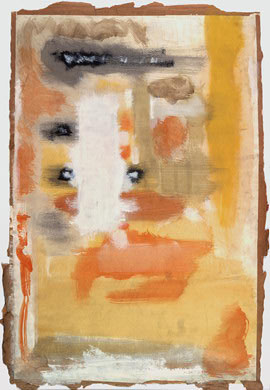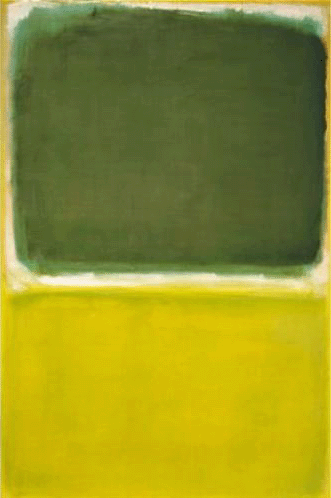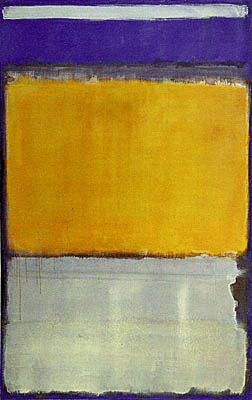




Leaving Home: Adorno, Heidegger and the Politics of Experience
Heidegger emerged from a deeply Catholic, theological and provincial environment of his native Messkirch before moving on to Heidelberg and eventually Freiburg University in south-western Germany . Adorno, on the other hand, was the son of a German-Jewish father and Italian-Catholic mother and hailed from the urban, liberal milieu of the financial hub of Germany , Frankfurt am Main.
In 1933 with the Nazi seizure of power, Heidegger became Rector of Freiburg University where he sought to bring its administration into line with the Nazi Party Program, which involved inter alia excluding Jewish faculty, including his former mentor, renowned phenomenologist, Edmund Husserl, from the university. The extent of Heidegger's involvement with the Nazi Party, which he had consistently sought to down-play, became the subject of considerable controversy, indeed, scandal with the publication in 1989 of Heidegger and Nazism (Farias). In contrast to Heidegger Adorno was forced to flee Germany in 1934, first for a stint in Oxford , where he wrote a draft of his critique of Husserl, and then on to the United States where, as an exile, he wrote some of his most influential works.
At the end of the war, Heidegger sought to rehabilitate himself by forging links with French philosophers such as Sartre and Jean Beaufret, who were to become important conduits between the conservative philosopher of Being and radical, post-1968 French post-structuralism. That L'Affaire Heidegger attracted so much attention had a great deal to do with the fact that post-World War II French thought, particularly “deconstructionism,” was deeply indebted to Heidegger and it had positioned itself as if, not explicitly certainly implicitly, opposed to fascism of every kind. Adorno, with Max Horkheimer—one of the key progenitors of inter-disciplinary studies--returned to Frankfurt where they re-established the Institut für Sozialforschuung , and became important figures at the University of Frankfurt for the emerging students' movement. The dispute been the German “modernists” and the French “post-modernists” has its roots here.
Contemporary philosophy is characteristically divided between Anglo-American or analytical and continental traditions, although recently Dummett (1993) has recently challenged the idea that a clear distinction can be drawn between the two. Nonetheless, what can be said with a degree of certainty is the fact that while the Anglo-American philosophical tradition seeks to model itself on the natural sciences and therefore views its enterprise as problem-solving, the continental tradition tends to situate philosophy in its socio-historical context and, as a consequence, views itself as a form of interpretation.
Perhaps the most influential currents of contemporary continental philosophy are Critical Theory, as represented by Jürgen Habermas, and the “post-structuralism” of an diverse and often discordant group of thinkers including Jacques Derrida, Jean-François Lyotard and Michel Foucault. Curiously, Critical Theory and post-structuralism can be read, to some extent, as forms of revolt against their own native philosophical tradition. In seeking to develop an expanded form of reason, namely, as ‘communicative rationality,' Habermas views himself as making a decisive break with irrationalist and anti-Enlightenment currents that have dominated German thinking since the 19 th century, from the Romantics, including the later Schelling, Nietzsche, Carl Schmitt, Ernst Jünger, Oswald Spengler to Martin Heidegger. Post-structuralists, on the other hand, seek to engage in a radical genealogical unmasking and or deconstruction of the rationalism that reaches a crescendo in the Enlightenment and French Revolution by drawing, at least in part, upon figures within the German tradition dismissed by Habermas as conservative. The often polemical relation of Critical Theory and post-structuralism can be said to have deep, if often unacknowledged, roots in the previous relation between Adorno, on the one side, and Heidegger, on the other. Indeed, in a recent interview, Habermas (2004) confirmed that the central point of contention between his theory of communicative action and deconstruction hinged on the philosophical merits of the later Heidegger.
That critical commentary on contemporary debates within continental philosophy have overlooked the relation between Adorno and Heidegger is, itself, not entirely surprising, given what Herman Mörchen (1981) calls the “refused communication” ( Kommunikationsverweigerung ) between the two men after a brief meeting in 1929. Indeed, it is appropriate that it is a refused communication that proves to be a vital, if mostly negative, link between these two critics of communication. Nonetheless, in striking contrast with his friend and mentor, Walter Benjamin who, with Brecht planned a reading group in the early 1930's oriented towards no less than the “destruction” of Heidegger's thought, Adorno addresses himself seriously to Heidegger throughout his career. From his 1928 inaugural lecture to the Philosophy Department at the University of Frankfurt (1977), the 1932 presentation to the Frankfurt Kantgesellschaft , “The Idea of Natural History,” (1984) which draws Benjaminian and Lukácsian motifs into a dialectical negation of the categories of “Being” and “time,” the somewhat polemical Jargon of Authenticity (1955), to radio addresses in the 1960s and his most important philosophical work, Negative Dialectics (1966) , Heidegger is the crucial interlocutor.
That this is the case should come as little surprise. For, as is well-known, Adorno and Heidegger shared a particular affection for the German language. Heidegger believed that German (with Greek) was the only authentic philosophical language; one of Adorno's principal reasons for returning to Germany after the war was a longing to write and speak in German. However, while Heidegger (1971) regarded the translation of Greek concepts into a corrupting Latin as a catastrophic moment in the forgetting of the experience of Being, Adorno (1991) viewed the spread of Latin as an important moment of genuine secularization. The originality of both thinkers lies in their insistence of what today, after what Richard Rorty (1967) calls the “linguistic turn,” has become a commonplace: that philosophical discourse is bound by its own linguistic horizons. Heidegger effectively transforms Husserl's phenomenology from a transcendental to a hermeneutic project, by deconstructing the supposed purity of the transcendental ego by way of the existential analytic of Dasein . That is to say, according to Heidegger, far from being pure every perception takes place in language and therefore must be interpreted. Similarly, Adorno argues that, despite its fetishization of “method” since Descartes, philosophy's tacit dependence upon texts confirms its inherently linguistic nature.
Despite the importance of Heidegger's thinking as a foil for his own, Adorno's deportment towards Heidegger was, at times, abrasively polemical, even to the point of jeopardizing his stated intention of providing an immanently critical reading of his philosophical adversary. While many of the recent discussions provoked by the publication of Victor Farias' book Heidegger and Nazism (1989) have tried to pose more or less delicately what has been since Plato (1989) the perennial question of the relation between philosophy and politics in terms of the opposition of “good” and “evil” (cf. Safranski, 1998), Adorno refused to mince words and, in the Frankfurt student newspaper Diskus , bluntly characterized Heidegger's thinking as “fascist right down to its innermost components” (Young, 1997). For his part, however, Heidegger is alleged not to have been familiar with any of Adorno's writings—a declaration whose meaning, as Freud's active avoidance of Nietzsche confirms (Gay, 1989), is not unambiguous. His oblique references to the “reification of consciousness” in Being and Time (cf. Goldmann, 1977) and intriguing remarks on Marx in the “Letter on Humanism” notwithstanding, Heidegger was largely indifferent to the materialist tradition. Had he addressed himself to it in any thorough way, Heidegger no doubt would have dismissed it as an exemplary manifestation of Seinsvergessenheit (or the forgetfulness of Being) and the metaphysics of subjectivity. (cf. Nancy, 1991).
Contesting Mörchen's claim that despite the “refused communication” between them, one can witness a convergence of philosophical themes in the Adorno's and Heidegger's philosophical writings, Alexander Garcia Düttmann (2003) argues that what Adorno and Heidegger address respectively is the relationship between name and historical event. For Heidegger, Hölderlin's Germania held out the promise of a radically different relationship to Being—one that overcomes technological thinking in favour of a “poetical dwelling”--for Adorno history was to be understood, retrospectively from the event named by the word “ Auschwitz ,” as catastrophe. The stakes between these to radically divergent, yet at the same time parallel, account of the historical relation between “name” and “event” can be understood as nothing less than the “memory of thought.” While Düttmann's reading is perhaps the most compelling account of the stakes involved in reading Adorno and Heidegger together, it fails to do justice to the historical context that shapes each thinker. To what extent, for example, do historical experiences shape the memory of thought? To what to extent do they shape what is remembered and what is forgotten?
In contrast to Düttmann, who has we have seen places the problem of the naming at the centre of his interpretation, this project takes the problem of home (or Heimat ) and homelessness as the central key to unlocking the relation between these philosophers. Indeed, as Edward Said (2002) has recently argued, the problem of exile is one of the central problems of our age as can be seen in the struggles by Arabs and Jews over Palestine —one of many long and dark shadows cast by the Holocaust. In the case of Palestine which exemplifies the twentieth and indeed twentieth century phenomena of dislocation, migration and the problem of return, the idea of home is at once concrete, suggesting as it does material, economic and social relations and, at the same time, metaphysical having to do with identity and belonging. The Romantic thinker, Novalis, for example, defines philosophy itself as a condition of homelessness or “the desire to be at home everywhere in the world.” (Cited in Lukács, 1971). Both Adorno and Heidegger point toward the impossibility of such a conception of philosophy. For Heidegger this urge confirms metaphysics as manifesting the essence of technological thinking, one that emerges with Plato's theory of the forms and culminates in the “will to will” in the writings of Nietzsche. For Adorno, this idea of philosophy is an effect of the material domination of nature by a ruthlessly instrumental subject—a subject that would reduce everything, even ultimately aspects of itself, to a means to some other end. It is possible to suggest in passing that one finds confirmation of both Heidegger's and Adorno's theses in the most recent developments of biotechnology in which stem cells are transformed into a medical raw material. Adorno's philosophy is written from the standpoint of the individual who has been cast out of his home and denied the possibility of a final return and eventual reconciliation. Hence, as he puts it, “For he who has no homeland, writing becomes a place to live.” While writing might become a temporary place of refuge, this writing itself will be marked and scarred by precisely the exile's inevitable experience of loss, alienation and exclusion. It is marked by the realization of the impossibility of Novalis' dream. Yet, at the same time, each articulates a vision of home—Adorno as a quasi-theological idea of ‘redemption,' Heidegger as a form of ‘poetic dwelling'—that motivates their respective writings. Each conception of home is articulated beyond the boundaries of philosophical, that is, conceptual, thinking. Each conception holds open the promise of a relation vis-à-vis the other that relinquishes the drive to dominate.
The guiding assumption of the project is that Adorno's idea of writing as a displaced form of homelessness expresses in highly condensed form Adorno's strange proximity to, yet fundamental distance from, Heidegger. To what extent can it be read as a kind of anticipatory rejoinder to Heidegger's claim in his famous letter to his French acolyte Jean Beaufret, subsequently known as the “Letter on Humanism,” (1947) that “Language was the house of Being”? To what extent do the differences in the articulation of a different relation to language and writing stem from differences in the very concrete historical experiences of both thinkers which, in turn, give rise to almost antithetical concepts of experience? Can such radically divergent experiences be reconciled? How significant is it, in other words, that Adorno, along with Horkheimer, Benjamin, as well as what Wolin (2003) calls “Heidegger's children” his own former students, many of whom were in fact Jewish, such as Herbert Marcuse and Hannah Arendt, and Hans Jonas along with legions of other leftist intellectuals was forcibly exiled? How significant that Heidegger who as we have seen evinces many shared concerns,, at least for a time, viewed National Socialism as offering a solution to the looming crisis of the West (cf. Rabinbach, 1997)? To what extent is Heidegger's later work, after his so-called ‘turning' ( Kehre ) to be understood as a self-critique (cf. Derrida, 1989)?
Addendum
This book-length project aims to provide a thorough examination of T.W. Adorno's critique of Martin Heidegger. The project seeks to provide a systematic discussion of the writings of two philosophers whose major concerns are very much those of our age: the fate of difference in a world dominated by “identity-thinking” (Adorno) and technology (Heidegger) at a time of the historically unprecedented global dislocation of peoples. In particular, it seeks to ask about the relation these two most formidable figures in twentieth century German philosophy and culture specifically in terms of the relation between the meaning of “home” and its relation to identity and belonging in the shadow of Auschwitz.
Leaving Home: Adorno, Heidegger and the Experience of Exile
My research applies insights from several disciplines, including political science, comparative literature, intellectual history and philosophy, to further and deepen our understanding of two of the most influential thinkers of the past century: Theodor W. Adorno and Martin Heidegger. In particular, my comparative analysis of these two figures will clarify the philosophical convergences and political divergences manifest in their respective analyses of modern thinking. In the process, the project seeks to fill a significant lacuna in scholarly literature on modern European thought and culture, namely the lack of a systematic, comparative treatment of these two important figures in light of the problem of experience.
That such a lacuna exists is surprising given the fact that, from his inaugural lecture to the Philosophy Department at the University of Frankfurt to his posthumously published Aesthetic Theory, Adorno engages closely with Heidegger's philosophy. Both Adorno and Heidegger take as their target the technological reductionism inherent in modern thought, culture and social practices. The project will approach Adorno and Heidegger through the concept of experience which, according to both men, is understood reductively by the philosophical tradition. For Adorno, concepts reduce experience of the sensuous particular to the universal qualities it shares with other such particulars. Concepts take things that are dissimilar and make them similar. Philosophy is directly involved, therefore, in a type of violence directed against the very object it seeks to grasp. For Heidegger, the tradition of Western Metaphysics culminates in technological thinking, where all entities, including human beings themselves, become reduced to a standing reserve of energy or raw material available for the production process.
The working hypothesis of the project is that both Adorno and Heidegger, despite the considerable biographical and political differences that separate them, are concerned to critique and find ways to overcome such reductionism. For both, the dynamic experience of art serves as an alternative paradigm for a non-reductive and ultimately non-violent way of relating to the “non-identical” (Adorno) or “Being” (Heidegger). Yet, at the same time, the manner in which each thinker defines the conception of experience is, itself, shaped by the radical differences in their own historical experiences. For Heidegger, modernity goes astray in as much as it becomes estranged from the “house of Being” which, for him, is language; for Adorno, such an estrangement cannot be viewed in terms of an ultimately Romantic conception of language, but rather, as capitalist modernity's inability to address the well-being, to wit: the material needs, including and especially physical shelter, of persons. The importance of this project is three-fold: It shall provide a systematic comparative analysis of the writings of Adorno and Heidegger; it shall help to clarify contemporary debates in social and political theory that have been deeply, if implicitly, influenced by these two philosophers; and, it shall contribute to deepening our appreciation of the relationship between thought and experience.
General Goal. The general goal of this project is to further and deepen our understanding of the relationship between Adorno and Heidegger in light of the problem of historical experience. Such an understanding, in turn, will clarify contemporary debates within social and political theory. More specifically, the project seeks to:
Investigate the parallels between Adorno and Heidegger's fundamental philosophical questions, namely: the fate of nature in a world dominated by “identity-thinking” (Adorno) or “technology” (Heidegger) in the context of their political divergences.
To examine the manner in which Adorno and Heidegger, respectively, have had a profound impact on contemporary social and political theory, particularly in regard to the relation between identity and difference.
To further and deepen our understanding of the general relation between thought and experience.
2.2 Context
a. Background Contemporary philosophy is characteristically divided between Anglo-American or analytical and continental traditions, although Dummett (1993) has recently challenged the idea that a clear distinction can be drawn between the two. Nonetheless, what can be said with a degree of certainty is the fact that while the Anglo-American philosophical tradition seeks to model itself on the natural sciences and therefore views its enterprise as problem-solving, the continental tradition tends to situate philosophy in its socio-historical context and views itself as a form of interpretation. As a consequence, it challenges the traditional domination of philosophy in relation to the other disciplines.
Two of the most influential currents of contemporary continental philosophy are Habermas's Critical Theory and the “post-structuralism” of Jacques Derrida, Jean-François Lyotard and Michel Foucault. Critical Theory emphasizes the universality of morality as the outcome of a process of communicative interaction in which the perspective of the other is formally included; post-structuralists mount a critique of formal universalism in the name of the other who is always excluded or marginalized by extant communicative interactions—for example, women, gays and lesbians, the colonized, etc.-- in the interest of the dominated particular in opposition to an oppressive universal. The theoretical dispute between Critical Theory and post-structuralism over the conditions under which the other can be included has deep, if rarely acknowledged, roots in the previous dispute between Theodor W. Adorno, on the one side, and Heidegger, on the other. Habermas was, for a period of time, Adorno's assistant at the University of Frankfurt ; Derrida's manner of readings texts, i.e. “deconstruction,” is profoundly indebted to Heidegger's notion of Destruktion (Wigley, 1993). Yet at the same time, the relation between Adorno and Heidegger, especially in regard to the problem of experience is much more difficult and complex than has been acknowledged heretofore.
b. Scholarly Literature. While the relationship between Frankfurt School thinkers and Heidegger has begun to receive general scholarly treatment (Dallmayr, 1991; Levin, 1996; Roberts, 1999; Feenberg, 2003), comparatively little has been written on the relation between Adorno and Heidegger in terms of the problem of experience. Here it is important to indicate that both Adorno and Heidegger deploy a concept of experience understood as formed and mediated as opposed to immediately “lived.” This is the distinction in German usage between Erfahrung and Erlebnis. That so little has been written on the relation between Adorno and Heidegger is quite remarkable, given the similarity of Adorno's socio-historical critique of the preponderance of “identity thinking” and Heidegger's ontological critique of technology as a reductive way in which objects in the world, including human beings, are “revealed” or “disclosed.” This is especially perplexing given that Adorno addresses himself explicitly to Heidegger throughout his career. It is possible to account for the paucity of scholarship on these parallels and convergences in terms of the overwhelming political differences between the two men: Adorno was exiled with the advent of the Nazi regime in 1933; Heidegger, in contrast, became the Rector of Freiburg University where he sought to bring the administration fully in line with Nazi policy.
Lack of scholarly attention to the relation between these thinkers can also be attributed to what has been called a “refused communication” (Mörchen, 1981) between the two men after a brief meeting in 1929—well before the Nazi seizure of power. However, contesting Mörchen's claim that despite the “refused communication” between them, one can witness a convergence of philosophical themes in Adorno's and Heidegger's philosophical writings, Alexander Garcia Düttmann (2002) argues that what Adorno and Heidegger address respectively is the relationship between name and historical event. For Heidegger, Hölderlin's Germania held out the promise of a radically different relationship to Being—one that overcomes a reductive, dominating technological thinking in favour of a “poetical dwelling”--for Adorno history was to be understood, retrospectively from the event named by the word “Auschwitz,” as catastrophe (see also Rabinbach, 1997). The stakes between these two radically divergent, yet at the same time parallel, accounts of the historical relation between “name” and “event” can be understood as nothing less than the “memory of thought.” While Düttmann's reading is the most thorough account of the relation between Adorno and Heidegger to date, it fails to do justice to the historical context that shapes each thinker. More importantly, it fails to address the important problem of historical experience.
In contrast to Düttmann, who places the problem of the naming at the centre of his interpretation, this project takes the problem of home (Heimat) and the experience of its loss or homelessness as the central key to unlocking the relation between these philosophers. Indeed, as Edward Said (2002) has argued, the problem of exile is one of the central problems of our age. This can be seen, for example, in the tragic struggles by Arabs and Jews over Palestine —one of many long and dark shadows cast by the Holocaust. In the case of Palestine, which exemplifies the late twentieth-century phenomena of dislocation and homelessness, the idea of home is at once concrete, suggesting as it does material, economic and social relations and, at the same time, metaphysical, articulating ideas of identity and belonging. The Romantic writer, Novalis, for example, defines philosophy itself as a condition of transcendental homelessness or “the desire to be at home everywhere in the world.” (cited in Lukács, 1971). Both Adorno and Heidegger point toward both the undesirability and, indeed, the impossibility of realizing such a Romantic conception of philosophy.
For Heidegger, this urge simply confirms metaphysics as manifesting the essence of technological thinking and the negation of the experience of Being. Such technological thinking emerges in the seventh book of the Republic, in Plato's theory of forms, and culminates in the “will to will” in the writings of Nietzsche (Heidegger, 1979). For Adorno, this idea of philosophy results from and contributes to the material domination of nature by a ruthlessly instrumental and patriarchal subject—a subject that treats everything, even aspects of its own sensuous experience, as a means to some other, ultimately nihilistic, end (Adorno, 1973; Horkheimer and Adorno, 1988; Gandesha, 2001). Heidegger's and Adorno's theses find confirmation in the most recent developments of biotechnology in which human stem cells are increasingly viewed as a kind of medical “raw material” in the production of health (Gandesha, 2004c). In contrast to the reductionism of “identity-thinking” or “technology,” both Adorno and Heidegger posit the work of art (Heidegger, 1993c; Huhn, 1996; Adorno, 1998; Roberts, 1999;) as enabling a very different kind of experience in which particulars are engaged without being treated reductively.
The guiding assumption of the project is that despite these profound parallels, Adorno and Heidegger part company in their approach to language. For Adorno, genuine experience takes the form of writing as a mimetic tracing of the art object. Such a form of writing is premised on the non-identity of word and thing as symbolized by the “foreign word” which suggests a non-organic conception of language (Adorno, 1991). In contrast, for Heidegger (1993a), the reductionism inherent in modern technology is the result of our estrangement from language which he regards as the “house of Being.” An engagement with the work of art enables an alternative to the aggressive nature of technology, to wit: a “poetical dwelling” with things that lets them be what they are (Heidegger, 1993c).
Among the questions that the project poses are as follows. To what extent can Adorno's (1978) view of writing as a form of displaced homelessness be read as a response to Heidegger? Is it sufficient to think of the conditions of estrangement and alienation in terms simply of an alienation from language? To what extent must the thought of home also carry a profoundly material dimension oriented not simply towards Being but the satisfaction of corporeal needs? To what extent do the differences in the articulation of a different relation to language and writing stem from differences in the very concrete historical experiences of both thinkers which, in turn, give rise to almost antithetical concepts of experience? Can such radically divergent experiences be reconciled? To what extent do historical experiences shape the “memory of thought?” To what to extent do theses experiences shape what can be remembered and what must be forgotten? What are the larger ramifications of the role of historical experience in thought?